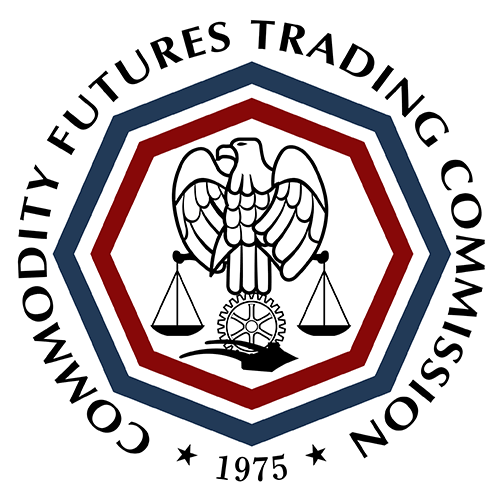The Digital Chamber's Cody Carbone Predicts Breakthroughs in US Crypto Lawmaking After the Election
In this interview, BlockchainJournal.com editor-in-chief David Berlind and Cody Carbone, Chief Policy Officer at The Digital Chamber, discuss the myriad regulatory challenges in the blockchain and crypto space, particularly within the United States. But first, Carbone discusses The Digital Chamber's new rebranding (it was formerly named "The Chamber of Digital Commerce"), emphasizing its role in advocating for clear and common-sense laws and regulations for blockchain and cryptocurrency-related technologies.
The conversation delves into the hurdles faced by enterprises due to the lack of regulatory clarity and how that sort of legal uncertainty stifles innovation. Carbone notes that many companies are hesitant to adopt blockchain technology due to the confusion between blockchain and crypto in policymaking circles. He stresses the importance of distinguishing between the two and educating both lawmakers and enterprise decision-makers on the broader applications of blockchain beyond the usage and trading of cryptocurrencies.
During the interview, Carbone acknowledges the lack of significant progress over the past decade when it comes to blockchain-related lawmaking. When David asks if that lack of progress is due to the politics rather than the merits and risks of the technology, Carbone feels as though blockchain regulation is still not yet influenced by such partisanship. But at the same time, he warns that there won't be much progress for the remainder of 2024, given that it's an election year. Carbone is optimistic that the real progress will finally come once the election in November is over.
The interview concludes with a mention of the DC Blockchain Summit (May 15, 2024), where lawmakers, regulators, and industry leaders will gather to advance the regulatory conversation surrounding blockchain and cryptocurrency while also educating the many stakeholders on the technology's nuanced benefits.
(The full-text transcript appears below.)
Published:April 10, 2024

11 min read
Audio-Only Podcast
Full-text transcript of David Berlind's Interview with Cody Carbone, Chief Policy Officer at The Digital Chamber
David Berlind: Today is April 5, 2024. I'm David Berlind. This is the Blockchain Journal podcast coming to you from NFT.NYC. It's a conference taking place on the west side of Manhattan. And standing with me is Cody Carbone. He is the Chief Policy Officer at an organization called The Digital Chamber. Cody, thanks very much for joining me on the Blockchain Journal podcast.
Cody Carbone: Of course, thanks so much for having me.
Berlind: Yeah, it's great to have you. We've met before at the [2023] DC Blockchain Summit where the conversation is all about regulation and lawmaking, blockchain and crypto, where these things meet, [and] how we get past some of the sluggishness and lawmaking that's been taking place over the last...
Carbone: The sluggishness is a nice way to say it.
Berlind: That's pretty much the case and we'll get into that. I want to talk a little bit about how that affects enterprise adoption, but first, I understand that there's been a change in name. So, why don't we just go through that so people can associate the prior name of your organization with a new name?
Carbone: Yeah, we just went through a rebrand. We're at our ten-year anniversary, which is shocking for this industry and the nature of digital assets and policy. I think we've been doing this for a decade, which is awesome. So, we were the Chamber of Digital Commerce. I'm sure that's how a lot of people know us and remember us, but everywhere we'd go, especially on Capitol Hill, people always referred to us just as "The Digital Chamber." They'd always shorten it themselves. So we decided, "You know what? Why don't we just lean into it? We are The Digital Chamber. We represent so much more than digital assets. We represent blockchain companies, financial institutions, payment processors, NFT companies, [and] consumer brands. Why don't we lean into it and embrace it that we are just a digital chamber?" And so that is the new name.
Berlind: Okay, and you're based in Washington, DC. So, that's kind of cool because you're right there with... rubbing shoulders with all the lawmakers and the regulators and where the action is taking place. What's the mission of The Digital Chamber?
Carbone: It's very simple. We want clear, common-sense rules for this nascent technology. We want to make sure that any company that's interested in getting involved in this space can do so safely and that the regulations don't stifle innovation.
Berlind: Blockchain Journal is very much about enterprise adoption of blockchain as an application platform. We're not so much about what's going up, what's going down, crypto, retail investing, who's going to jail, who's not going to jail. We're really about how can blockchain as a platform drive new and improved business outcomes.
Berlind: You talk about these companies that are interested in maybe using blockchain that you represent – a subset of some of the organizations you represent. My understanding is from speaking to a lot of those organizations that they're very hesitant to get started because what you pointed out – is there's no... there's a lack of regulatory clarity – which is making them a little gun shy because they don't want to wake up one morning and find out that they're on the wrong side of the law, have a bunch of blue coats show up, have their brand in the headlines of CNN or something like that. So let's talk a little bit about that. Are you seeing the same thing or seeing a lot of hesitation, particularly when it comes to American companies?
Carbone: Absolutely, and I think it stems from there's a lack of understanding in Washington of what blockchain technology is. Unfortunately, given the headlines associated with this industry, people just conflate – in DC conflate blockchain with crypto. Everything is crypto. So, everything falls under this crypto umbrella. So that makes it very precarious for a company who's getting involved in the space to say, "Hey, I'm trying to use blockchain technology because I'm trying to solve for some inefficiencies at my company."
If you go and say that to Washington, they're like, "Oh, you're a crypto company?" And so, that lack of understanding, that's what we're trying to move through. We're trying to build up education and really focus on the applications of the underlying tech and not just price go up, price go down, and get to make sure lawmakers and regulators understand that and the difference here, and hopefully then, we can see blockchain used by enterprises in supply chain, in healthcare, in media, [and] in entertainment, that's what we're trying to push forward.
Berlind: Right, because of the chief risk officers, the general counsels of these organizations, when they see there's no regulatory clarity, they say, "Full stop. This is too much of a risk to a brand that we spent decades building up." And that's clearly an issue, but let's go back to that sluggishness.
You said you've been doing this for ten years now, [and] here we are in 2024, and there's been very little progress in the way of new laws along the lines of what we've seen happening in other international jurisdictions. [In] the EU, where they have MiCA – or where... even within the EU – different countries have actually established additional guidelines. That clarity, it's not that enterprises don't like laws or don't like regulations. Some of them are anti-regulation; they prefer a lighter hand from government. But they just want clarity because then they know where the guardrails are. So how long has it been – ten years that you've been doing this – what's taking so long?
Carbone: That education piece. Still, so many lawmakers and policymakers don't understand the use cases of blockchain technology, and I think that's finally starting to change.
We had over a hundred bills that reference blockchain introduced last Congress. I think there's a perception from a lot of folks in industry, that like, "Oh, a bill was introduced. It's going to become law. Let's move quickly." It takes [a] very... a lot of time and it's a lot of effort to move something in on Congress and Capitol Hill. So we're finally getting there.
We have these bills that are introduced. We're starting to see lawmakers champion the use cases for this technology. And so, I think think if you look towards the future, in the very near future, and hopefully early next Congress, we'll start to see that regulatory clarity come in[to] place. We'll start to see the legal frameworks developed from Congress and adopted in the US because we don't want to lose out. And that narrative that we're losing out and that other jurisdictions, as you alluded to, are moving ahead that irks lawmakers in the US. They're used to the US being the leader in technology, the leader in capital markets. They don't want to fall behind. And so we're finally starting to see that momentum carry.
Berlind: So do you think we're going to see something break in the logjam this year, something significant?
Carbone: I don't think this year. I think the fact that we're already in an election year, everyone is going to their partisan camps. People are going back home to their districts and states, and they're running for reelection. I think it's really tough to find time in the legislative calendar to move something this year. However, we're creating the foundational pieces. We have bills that are introduced that are being debated, that are moving through committee, that are hopefully going to get time on the House floor. Maybe not both in the House and Senate, so it won't go to the President's desk, but we are going to see clarity soon, I think, early next year.
Berlind: You talked about the grouping of crypto with blockchain, which I say is a fairly good observation. I'm seeing that as well. Should those two things be put on completely separate tracks, and is there a way to break them apart in a way that you can regulate blockchain without necessarily regulating crypto and vice versa?
Carbone: Absolutely. I mean, crypto should be regulated as a financial product. That's what it is. Whether it's a store of value or a medium exchange, it is a financial product and should be regulated as such. Whether it's the SEC or the CFTC or Treasury, that's a debate that's being had right now.
Blockchain technology – this is just back-office technology. These are the underlying rails that should be regulated – like the internet, like software – and so, I think they completely – in terms of the regulatory treatment – should be separated, and that's what we're trying to educate on.
Let's talk about the applications and use cases of blockchain to solve for those inefficiencies that enterprises are dealing with on a daily basis. We don't need to have that conversation on price go up, price go down. That scares so many lawmakers because we're talking about money. When you take money out of the conversation and you talk about the underlying rails, it becomes a lot easier to digest, and hopefully, that regulatory treatment will be be disparate.
Berlind: What about educating the enterprises? Because there are CEOs and people who see the same headlines and they say, "Oh, I just saw somebody go to jail; I saw a scam; I don't want to get part of that." So forget blockchain as a means of driving new efficiencies as you talked about or maybe unlocking some new business opportunity that was not available to them through some previous technology. How do we get them on board?
Carbone: I think the enterprises are being forced to get educated on it themselves because of the market. You look at, you know, one, the prices going up, but you look at the technology being used across all the different industries, and to see that how like a Walmart using a blockchain for their supply chain, and how it brings transparency, and how it's saving them money. Anyone, any business out there, any enterprise who says, "Whoa, they're saving money by using blockchain? I'm interested in that." So, I think that's starting to happen. Part of our job is, yes, it's educating Capitol Hill and the policymakers. The other part of our job is educating the enterprises, educating the community on why this technology should be adopted, why it should be developed for every enterprise, no matter what industry you're in. So, that education aspect for the private sector is critically important, and so we're focused on that as well.
Berlind: Circling back to your observation that we're in an election year, this seems to me to have become more of a partisan conversation. Like many other partisan conversations, one guy says black, the other guy says white. And they're only saying black or white to be the oppositional force to the other party. Has that overshadowed this whole conversation?
Carbone: Not yet. And it's my biggest fear. I mean, that's what keeps me up at night, is that this technology becomes partisan. Technology should never be partisan. What we're talking about is something that could be used for all. It doesn't matter what your party is, [or] what your beliefs are. Technology should never be partisan. I had a member of Congress tell me, "Well, it may be non-partisan now, but it really is just pre-partisan because everything in Washington" to your point, "becomes partisan." So I am fearful of that. We're working to make sure that doesn't happen. Right now, there is still bipartisan consensus that this needs to be moved forward. that we need a regulatory framework. I think everyone thinks that.
Now, how you regulate it, I think that's where the partisanship is coming out. We're seeing partisanship with CBDCs, but it should be nonpartisan. We're going to make sure it stays that way because, again, this could be used for all and should be used for all.
Berlind: Okay, you have an event coming up in a [of] couple months, I think it is. I'm hoping to be there. Why don't you just tell some of the people who are watching this video what that event is about and why they should consider attending?
Carbone: Yeah, well, we'd love to see you there. We'd love to see everyone there. It's the DC Blockchain Summit. It's our seventh summit. It's in Washington, DC, on May 15th. So [in] just a few weeks now, we have over ten members of Congress coming to speak.
We've got the IRS, Treasury, CFTC, SEC. So if you're interested in the meeting of blockchain technology – this technology – digital assets, and policy, this is the only spot to get that conversation. We are not just championing the conversation and just having people who are supporters on stage. We also have critics on stage. We want to make sure that everyone can see both sides of the spectrum.n And so, we have industry leaders, politicians, [and] policymakers; it really is the best one-day event to hear all sides of the policy-making conversation.
Berlind: Okay, great. Well, Cody Carbone, Chief Policy Officer at The Digital Chamber, we'll call that from now on. Thanks for joining me on the Blockchain Journal podcast.
Carbone: Thanks so much for having me.
Berlind: Yeah, so we've been speaking with Cody Carbone. Again, I just said he's the Chief Policy Officer at The Digital Chamber. At the very end of this video, I'm going to throw up some QR codes. That's how you can connect with me, with Blockchain Journal, with Cody, [and] with The Digital Chamber. We're going to put all of that up at the end of the video.
If you want to find more videos like this one, you can go to blockchainjournal.com. We have all the videos published there, as well as the full-text transcript. If you want to see just a video on YouTube, we have a YouTube channel, youtube.com/@blockchainjournal. You can watch all of our interviews there as well.
Thanks for joining us, and we'll see you at the next video.













